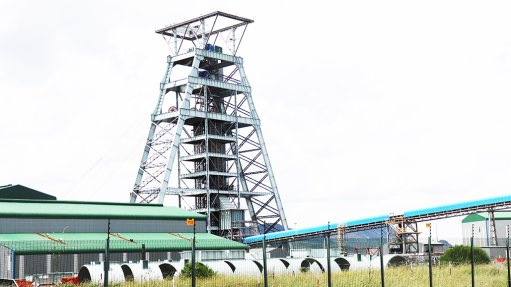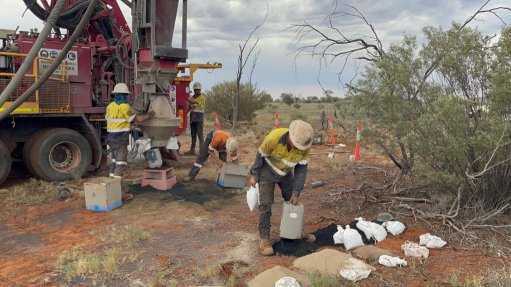$5.4tr investment in mining needed by 2035 to meet new energy demand – report
A new report published by the Future Minerals Forum states that an estimated $5.4-trillion in investments is required by 2035 to meet the growing demand for key materials in the mining and metals industry.
According to the report, this demand is driven by the ongoing energy transition and traditional factors such as population growth, necessitating substantial investment in mining, refining and supporting infrastructure.
This investment is essential not only for ensuring the availability and affordability of materials but also for producing them sustainably. Advanced processing technologies and robust public-private partnerships are required to achieve this.
By focusing investments in critical areas, the report suggests there is potential to foster socioeconomic growth locally, build resilient supply chains and ensure a steady and reliable supply of critical materials for the global economy.
The report identifies several key challenges in the energy transition raw materials sector, including the need for investment, collaboration between governments and industry, value addition, creating shared social and economic value, and addressing societal perceptions of the minerals sector.
It underscores the vital role of the minerals industry in nation-building, particularly in providing raw materials and supporting infrastructure expansion. The sector’s role in the energy transition involves balancing emission reduction goals with local socioeconomic development in supplier countries.
Value creation, according to the report, often entails downstream processing and value chain integration, which can enhance economic value and market access.
However, the impact of such investments varies across industries, challenging the assumption that downstream integration always results in added value. Countries and companies are re-evaluating the physical locations of production to secure and protect strategic supply chains.
This shift has made mineral value addition a renewed focus for resource-rich nations. Rather than exporting raw materials, these nations aim to produce higher-value midstream or downstream products, especially for minerals critical to clean energy technologies.
The report highlights that policies promoting value addition have been implemented globally. Emerging markets in Africa, Asia, Latin America and the Middle East, as well as advanced economies such as Australia and Canada, are formulating policies to ensure that investments lead to significant economic gains and sustainable growth. Policymakers are considering factors such as benefits, competitiveness, and market dynamics to maximise returns.
Meeting the rising demand for transition materials crucial for low-carbon technologies will require extensive investment in mining, refining and infrastructure development.
While past investments largely focused on mining assets, the future demands greater emphasis on processing to meet the complex refining needs of materials such as nickel and lithium.
The report notes that as mining operations move to more remote areas, investments in reliable, low-cost infrastructure – such as power, roads and ports – will become increasingly important to ensure the availability and affordability of essential materials. These efforts will support the global transition to a low-carbon economy and drive sustainable industrial growth.
Mining’s contribution to societal and economic development is substantial, providing raw materials, creating jobs, and driving infrastructure expansion. However, the report stresses that success depends on shared value propositions and robust commercial frameworks that integrate sustainability.
The industry’s operational and financial performance, shaped by volatile commodity markets and regulatory environments, underscores the need for innovation and efficient resource management.
Challenges such as resource depletion, project cycle times, and geopolitical tensions must be addressed to sustain long-term profitability. A multi-stakeholder approach involving governments, companies, and communities can help create shared value in the mining industry.
Historically, the ‘extract-and-ship’ model caused tensions and underinvestment in regional growth and infrastructure. However, the industry is now shifting towards fostering shared prosperity, the report says.
Governments, according to the report, have a pivotal role in creating an environment conducive to collaboration and value sharing. By providing access to capital, investing in infrastructure, and developing regional hubs, governments can mobilise ecosystems across regions such as the Super Region of Africa, and Western and Central Asia.
Clear roles and shared visions are essential for establishing a roadmap that benefits all stakeholders and contributes to overall prosperity. Durable partnerships and clear accountability between governments, industry, and communities are deemed critical for sustainable growth and meeting stakeholder expectations.
The report highlights the resource-rich super region of Africa, and Western and Central Asia as a key area of focus.
This region, encompassing 79 countries along a 9 000-km corridor from South Africa to Kyrgyzstan, covers 33% of the world’s landmass and is expected to account for more than 50% of the global population by 2024.
The report identifies the region’s potential to supply essential minerals for the energy transition and global development, as well as to emerge as a significant source of demand in the future.
Article Enquiry
Email Article
Save Article
Feedback
To advertise email advertising@creamermedia.co.za or click here
Announcements
What's On
Subscribe to improve your user experience...
Option 1 (equivalent of R125 a month):
Receive a weekly copy of Creamer Media's Engineering News & Mining Weekly magazine
(print copy for those in South Africa and e-magazine for those outside of South Africa)
Receive daily email newsletters
Access to full search results
Access archive of magazine back copies
Access to Projects in Progress
Access to ONE Research Report of your choice in PDF format
Option 2 (equivalent of R375 a month):
All benefits from Option 1
PLUS
Access to Creamer Media's Research Channel Africa for ALL Research Reports, in PDF format, on various industrial and mining sectors
including Electricity; Water; Energy Transition; Hydrogen; Roads, Rail and Ports; Coal; Gold; Platinum; Battery Metals; etc.
Already a subscriber?
Forgotten your password?
Receive weekly copy of Creamer Media's Engineering News & Mining Weekly magazine (print copy for those in South Africa and e-magazine for those outside of South Africa)
➕
Recieve daily email newsletters
➕
Access to full search results
➕
Access archive of magazine back copies
➕
Access to Projects in Progress
➕
Access to ONE Research Report of your choice in PDF format
RESEARCH CHANNEL AFRICA
R4500 (equivalent of R375 a month)
SUBSCRIBEAll benefits from Option 1
➕
Access to Creamer Media's Research Channel Africa for ALL Research Reports on various industrial and mining sectors, in PDF format, including on:
Electricity
➕
Water
➕
Energy Transition
➕
Hydrogen
➕
Roads, Rail and Ports
➕
Coal
➕
Gold
➕
Platinum
➕
Battery Metals
➕
etc.
Receive all benefits from Option 1 or Option 2 delivered to numerous people at your company
➕
Multiple User names and Passwords for simultaneous log-ins
➕
Intranet integration access to all in your organisation





















